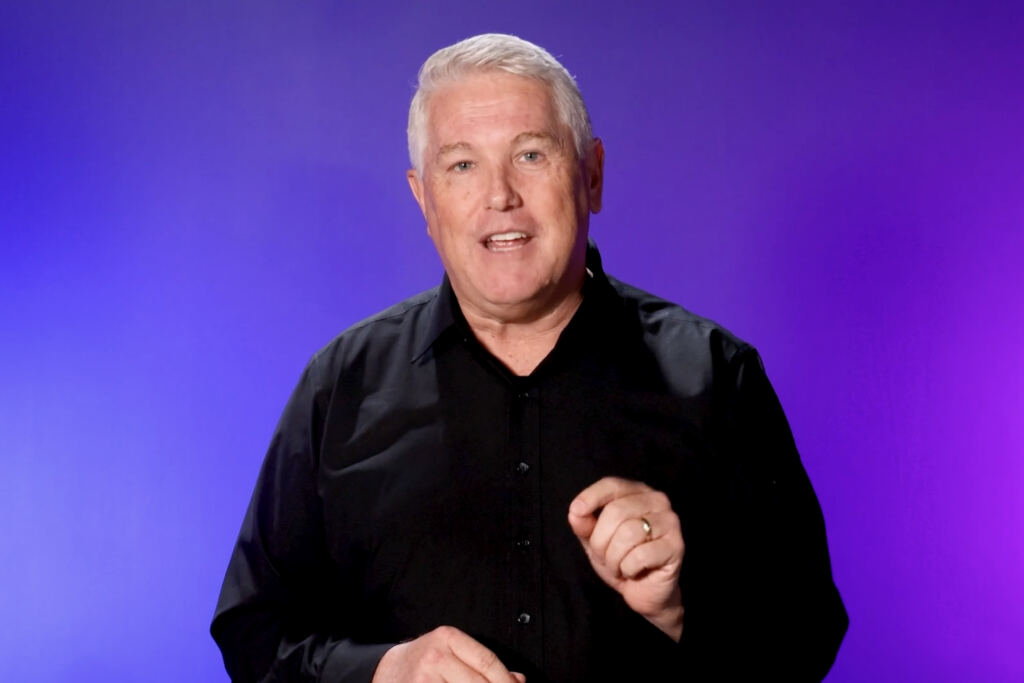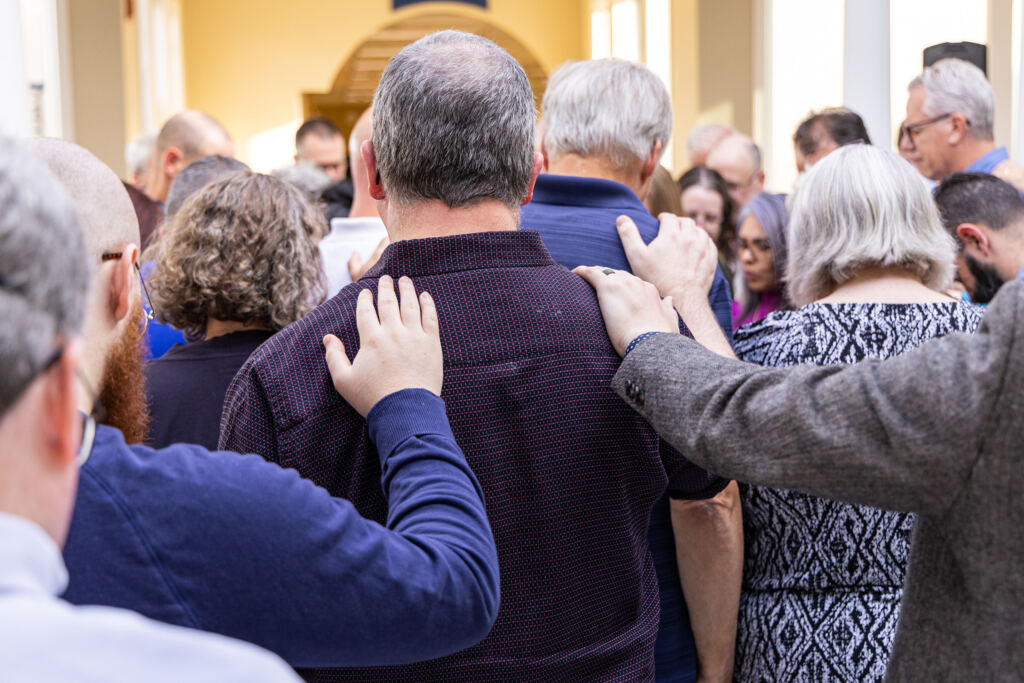At our church, the framework we use to help our people understand this is Gospel + Safety + Time.
In order for someone to grow in their spiritual maturity, they need Gospel + Safety + Time. Just like a plant needs water + soil + sunlight in order to grow, what we need is Gospel + Safety + Time.
- If you’re meeting one-on-one with someone to help them grow in their spiritual maturity, you need to be thinking, “What does Gospel + Safety + Time need to look like for this person?”
- If you’re meeting with a small group of women to help them grow in their spiritual maturity, you should be thinking, “What does Gospel + Safety + Time look like for this group? And, how do I create a culture of Gospel + Safety + Time in this particular group?”
- When it comes to leading your small group, you need to be thinking, “What does it look like to create a culture of Gospel + Safety + Time in the fabric of this particular group?”
Let me briefly explain each one…
GOSPEL
One hundred percent of someone’s growth in spiritual maturity ultimately happens by repenting and believing the truths of the gospel.
Some people tend to believe that the gospel only gets you in the front door of salvation and then the rest of your spiritual growth happens through some combination of “tips and tricks,” exhortations to “do better try harder,” becoming more “passionate and committed,” pursuing spiritual disciplines, or getting involved and serving.
However, we know from studying scripture that the way that we grow in our spiritual maturity is by always coming back to the person and work of Jesus and applying the truths of the gospel to all parts of our thinking, feeling, and relating. In this way, the gospel isn’t the first step in a staircase, but rather the hub of a wheel where all the other spokes of our life are connected to it.
When someone says they are “gospel-centered” they are largely trying to make a statement about how the process of sanctification happens. The answer? It happens in the same way that justification happens, through repentance and faith in Christ and orbiting our heart and life around the person and work of Jesus. In this way, both Christians and non-Christians need the same thing.
SAFETY
Safety is about kind of culture and environment that we create in our social relationships. Safety is about having a culture of non-accusation, where no one is pressured or cornered into spiritual maturity, and we pursue spiritual maturity not out of fear of being shamed by others
Instead, we have safety with others so that we can relax and admit what’s truly going on in our lives and hearts. That’s because we are characterized by treating one another with gentleness, respect, and restraint.
Having a culture of safety in our relationships not only helps people relax and open up, but having a culture of safety is also helps point people to the greater reality that safety and refuge are ultimately found in Christ himself. In this way, having a culture of safety in our church is very gospel-centered!
Some of us grew up in spiritual environments that believed, in one way or another, that having an unsafe environment was both spiritual and mature. But this isn’t reflective of the gospel, and common sense tells us that this isn’t how people grow into maturity.
TIME
I don’t meet many people who grow in spiritual maturity quickly or rapidly. If they do, that’s great! But just think about how much time it’s taken you to grow in maturity, and how much growing you still need to do!
When I was in my 20’s I think I believed that some people are complicated, and some people aren’t. But the older I’ve become, the more I think that everyone is complicated. The more I get to know myself the more I know how complicated I am! Complicated people like us need time and space to evaluate our lives and apply the truths of the gospel to the deep levels of our heart. Gospel-centered growth takes time.
And this kind of deep change often happens in non-linear ways. That’s because we’re all complicated. We all need time to change, because spiritual maturity doesn’t happen by setting deadlines for people.
ARE YOU FLEXIBLE?
In saying all this, I hope you’re catching the drift that I’m encouraging you to think about Gospel + Safety + Time from the perspective of a leader. Because Gospel + Safety + Time is the kind of stuff that a leader always needs to be thinking about! Furthermore, leaders who think about Gospel + Safety + Time need to be flexible and adaptable.
For example:
- What does it look like for the truths of the gospel come to bear on this particular person’s life or this particular group of people?
- What does it look like to communicate and model the truths of the gospel to this particular person or group of people?
- What does it look like to create an environment of safety for this particular person or group of people? Because some people are more straight-forward than others, so safety doesn’t look the same for everyone.
- What does it look like to create an environment where this particular person or group is given amble time and space to apply the truths of the gospel to their lives? This looks different for various types of people, too.
Questions
Here are some questions for you and your leaders to think about:
- In what ways have you seen the principles of Gospel + Safety + Time play a role in your spiritual growth?
- When it comes to Gospel + Safety + Time, which one do you tend to struggle with the most as a leader? Why?
- What truths of the gospel do you need to believe in regards to your struggles in the previous question?
Editor’s Note: This article was originally published on Deo Gloria March 13, 2019. Used with permission.





